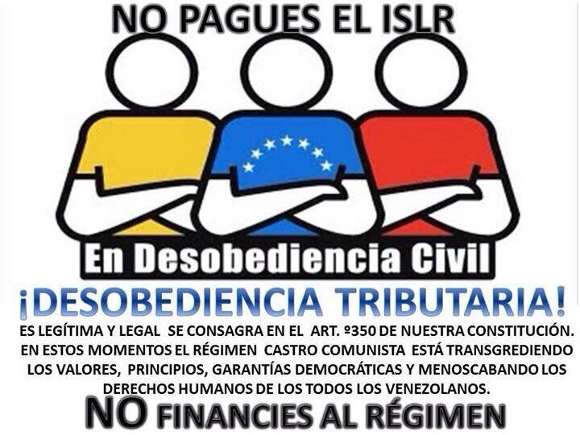As I monitor rumblings of tax resistance around the interwebs, there are occasionally outbreaks from Venezuela, which has become something of a nation-scale cautionary tale in recent years. Many of those rumblings invoke “350” — Article 350 of the Venezuelan Constitution, which reads:
The people of Venezuela, true to their republican tradition and their struggle for independence, peace, and freedom, shall disown any regime, legislation, or authority that violates democratic values, principles, and guarantees or that encroaches upon human rights.

“Don’t Pay Income Tax in Civil Disobedience. Tax Resistance! It is legitimate and legal as enshrined in article 350 of our Constitution. Right now the Castro-communist regime is transgressing the democratic values, principles, and guarantees and is undermining the human rights of all Venezuelans. Don’t finance the regime!”
El Nacional looks into how Article 350 might work in practice, now that the organized opposition in Venezuela has formally invoked it. An excerpt about tax resistance:
“Another example is tax resistance, an act penalized by the Tax Code. If someone invokes this article in executing this type of resistance, they will engage in this crime. This is the practical problem of civil disobedience. When it is exercised against a government that does not recognize [the Article 350 right], the executive considers that these citizens are not exercising a right but are acting outside the law,” said [constitutional law expert Jose Ignacio Hernandez]
